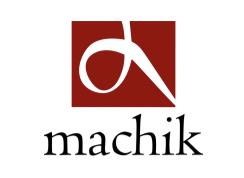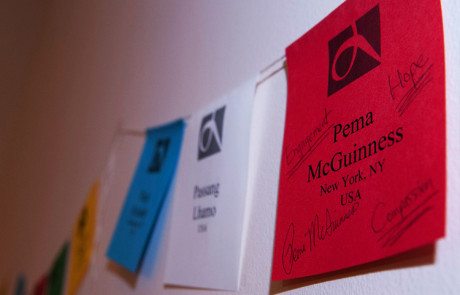Machik at Wingate University
I had the good fortune to find out about an amazing opportunity unfolding at Wingate University in Wingate, North Carolina. An entire week was being dedicated to the Arts and Culture of Tibet as presented by a group of Tibetan Monks from the Drepung Loseling Monastery in India.
The ancient art of sand mandala painting, opening and closing ceremonies utilizing sacred musical instruments, multiphonic chanting, and a beautiful performance by the monks on the last day called the Mystical Arts of Tibet, incorporating the music, dance, and unique debating style of this ancient culture, gave us all a magical experience.
It was, however, the talk by Dr. Losang Rabgey, co-founder of Machik with her sister Dr Tashi Rabgey, that left me stunned. I thought I knew, but I didn’t. First let me say that Dr. Rabgey has a very calm and serene demeanor, which belies the intensity of the story she started to tell. Machik works in areas of Tibet with very few educational or vocational opportunities for young people. Machik, run by a small staff and amazing volunteers, works against incredible odds to serve the needs articulated by Tibetans and to build new understanding with the Chinese. Through a strong vision, uncommon diplomatic skills, and a strong dose of patience and determination, they have succeeded in building a public primary school in Chungba , a small rural Tibetan community that previously had no phones, running water or regular electricity. The school has since then expanded to include a middle school and has been providing educational access to the Chungba children for the first time. In just the first year, the students accomplished the unheard of feat of being the top school in academic results in the entire county. In addition, by working with the children’s parents and the rest of the community, Machik has been able to develop conservation initiatives and raise environmental awareness.
What is another miracle in a string of them is the Summer Enrichment Program (SEP) , which brings together Chinese, North Americans and Tibetans for a four-week program filled with learning, teaching, and cross-cultural activities. Even with bureaucratic challenges and very challenging times in Tibet now, Machik has been able to succeed in truly unique and innovative ways. Dr. Rabgey’s lecture was both informative and interesting, and yet it was more than that. You could feel it. She made it real. There was something that didn’t exist for these Tibetan kids before Machik: Hope.
– Gail Sullivan
The ancient art of sand mandala painting, opening and closing ceremonies utilizing sacred musical instruments, multiphonic chanting, and a beautiful performance by the monks on the last day called the Mystical Arts of Tibet, incorporating the music, dance, and unique debating style of this ancient culture, gave us all a magical experience.
It was, however, the talk by Dr. Losang Rabgey, co-founder of Machik with her sister Dr Tashi Rabgey, that left me stunned. I thought I knew, but I didn’t. First let me say that Dr. Rabgey has a very calm and serene demeanor, which belies the intensity of the story she started to tell. Machik works in areas of Tibet with very few educational or vocational opportunities for young people. Machik, run by a small staff and amazing volunteers, works against incredible odds to serve the needs articulated by Tibetans and to build new understanding with the Chinese. Through a strong vision, uncommon diplomatic skills, and a strong dose of patience and determination, they have succeeded in building a public primary school in Chungba , a small rural Tibetan community that previously had no phones, running water or regular electricity. The school has since then expanded to include a middle school and has been providing educational access to the Chungba children for the first time. In just the first year, the students accomplished the unheard of feat of being the top school in academic results in the entire county. In addition, by working with the children’s parents and the rest of the community, Machik has been able to develop conservation initiatives and raise environmental awareness.
What is another miracle in a string of them is the Summer Enrichment Program (SEP) , which brings together Chinese, North Americans and Tibetans for a four-week program filled with learning, teaching, and cross-cultural activities. Even with bureaucratic challenges and very challenging times in Tibet now, Machik has been able to succeed in truly unique and innovative ways. Dr. Rabgey’s lecture was both informative and interesting, and yet it was more than that. You could feel it. She made it real. There was something that didn’t exist for these Tibetan kids before Machik: Hope.
– Gail Sullivan

